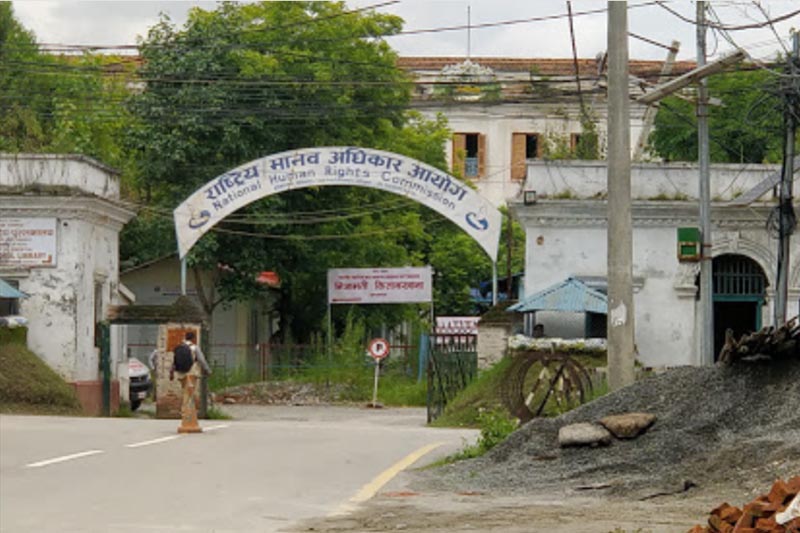Govt told to ensure safe migration, protect rights of women migrants
Kathmandu, July 19
The National Human Rights Commission has made a series of recommendations to the government for the improvement of human rights situation of migrants workers who are often subject to exploitation in various forms.
In its report titled ‘Rights Situation of Migrant Workers’ made public earlier this week, the rights body said there was an urgent need to initiate action against the wrong practice of recruiters by carrying out monitoring of activities of foreign employment agencies in an effective manner. “Though existing laws do not stipulate provision of agents in foreign employment sector, they continue to prevail, often working against the interest of aspiring migrant workers. Therefore, the government should control their illegal activities pronto,” the NHRC stated.
The government should ensure that foreign employment agencies maintain transparency while charging money for aspiring migrants, only eligible persons should be permitted to pursue foreign employment by providing adequate skill training and the government should also ensure that workers are not cheated at any stages of migration, according to the report.
The NHRC stated that the government had failed to implement the provision of ‘free visa, free ticket’ as promised to aspiring migrant workers. There are two ways from which aspirant migrant workers can go for foreign employment, one is through institutional channel and the other is through individual basis.
Migrant workers going for abroad employment through individual basis has increased after the government took the decision on ‘free visa, free ticket’ provision for destination countries in the Gulf region. Despite this provision in place, recruiters have been charging fees on the aspirant migrant workers illegally. “The NHRC strongly recommend the concerned authorities to implement the ‘free visa, free ticket’ provision in the interest of migrant workers,” it said.
The NHRC has also urged the government and the concerned authorities to raise awareness among the target groups about safe and dignified foreign employment as well as services and facilities to be provided by the Department of Foreign Employment with the help of local levels. In yet another recommendation, NHRC has suggested the government to lift the age bar and ban imposed on women for foreign employment. “The government is requested to make arrangements for sending aspirant women migrant workers in a safe and dignified manner by lifting age bar and ban imposed on women out migrants,” it said.
The government had taken adopted the restrictive measure to protect aspiring women migrant workers from forced labour and other forms of exploitation. Currently, only Nepali women aged 24 and above are eligible to take up domestic jobs in the Gulf countries and Malaysia. In March 2017, the Parliament’s International and Labour Relations Committee had instructed the government to impose a ban on Nepali women migrating to these countries for employment as housemaids.
Various studies shows that the government’s protectionist measure had adverse consequences on women out migrants. The age bar provision has not discouraged younger women from migrating for foreign employment. The age bar is more likely to increase women’s out migration in an illegal manner raising the risk of trafficking. It has also resulted in undermining economic and social opportunities for women.
The government has been recommended to direct concerned local levels to issue birth registration certificate to the children of returnee women migrants, born from unwanted pregnancy due to their sexual exploitation during foreign employment. The recommendations include maintenance of financial discipline in the DoFE and Department of Immigration; signing of bilateral labour agreement with agencies working against exploitation of migrant workers, forced labour and human trafficking; effective implementation of national and international laws related to the rights of migrant workers; protection and rehabilitation of persons maimed during foreign employment; justice to the victims; and action against the guilty.






